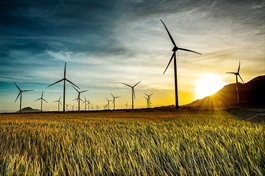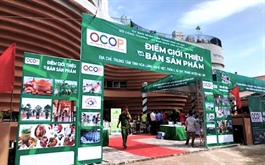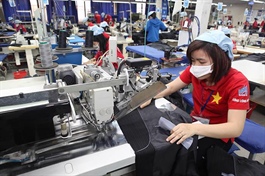VBF: Agribusiness working group recommends digital transformation
VBF: Agribusiness working group recommends digital transformation
The working group argues that Vietnamese agriculture needs to apply technology and digital transformation to create a turning point in agricultural production, moving from a traditional agrarian economy to one based on scientific technology, digital transformation, and circularity.
This was the recommendation of David Whitehead, head of the Vietnam Business Forum's (VBF) Agribusiness Working Group, within the framework of the annual BVF dialogue in Hanoi today.
According to the working group, in 2022, the global agricultural sector faced many challenges such as high prices for raw materials, the effects of the Russia-Ukraine conflict, the production protection policies of some countries, and stricter import requirements.
Thus, in Vietnam and throughout the world, the sector needed to re-invent itself. New ideas, smart concepts, new farming models, innovation, digitalisation, more efficient logistics, and a greater focus on circular agriculture and environmental responsibility needed to be addressed.
In Vietnam in particular, the reformation become more necessary because the country is diversifying its export markets for agricultural products. It is expected that in 2023 and subsequent years, stricter market requirements will force the sector to be more innovative, adaptable, and able to identify opportunities to build a sustainable agricultural industry with emphasis on environmental responsibility and circularity.
Vietnam made commitments at COP 26 to ensure production growth, protect the environment, build sustainable agriculture, and to join the global value and food chains. Such commitments must result in specific actions from producers, crop farmers, fish farmers, and foreign-invested enterprises involved in the sector.
As representative for the Agribusiness Working Group, Whitehead said, “Vietnam has been promoting digital transformation in many fields, of which, agriculture is a priority. But with increasing requirements in the export market, Vietnamese agriculture must increase its competitiveness and adapt to new conditions by applying smart technology to production.”
However, according to the working group, the government's goal of recovering economic development in the agricultural sector will face further hurdles. It also faces obstacles from other areas, including crop and animal diseases, climate change, natural disasters, drought, and saltwater intrusion – all which continue to negatively affect production.
To help the nation and the Ministry of Agriculture and Rural Development to develop circular economy solutions to minimise waste and environmental damage, while increasing productivity and shortening the supply chain, the Agribusiness Working Group is willing to support efficient water use and wastewater management along with the minimisation of waterway and wetlands salination – particularly in the Mekong Delta.
“The working group will monitor climate change and its effect on weather patterns, develop smart agricultural systems through digital transformation, and track the production of clean and hygienic food,” Whitehead said.
“There is an opportunity for foreign agribusiness investors to take a leading role in smart, efficient agricultural technology and methods, and to realise the benefits of waste and pollution control and water use management,” he added.
























